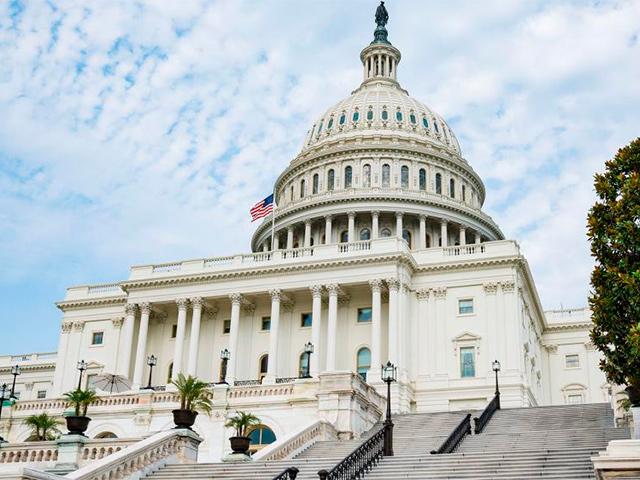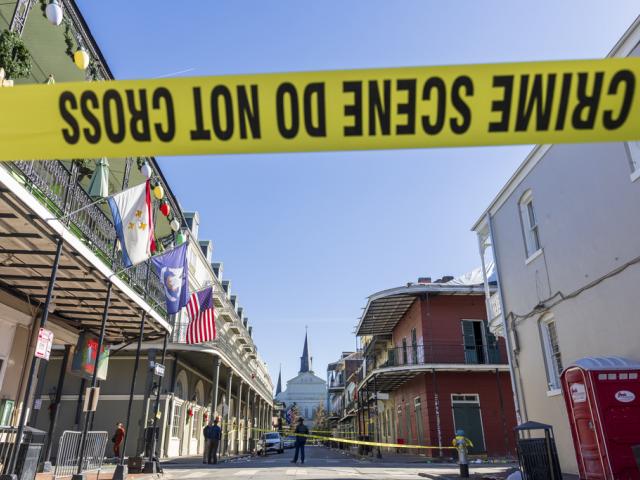American universities receive foreign donations reaching hundreds of millions of dollars, much of it unreported, violating federal regulations.
The contributions often aim to influence decisions and even attitudes, especially when attacking Israel.
For more than a century, the American Association of College Professors (AACP) stood out as a defender of academic freedom by resisting boycotts. Last summer, however, the group shifted that approach, stating the association would support academic boycotts.
Campus Reform Higher Education Fellow Ken Tashjy believes this move is connected to antisemitism.
"It's no coincidence that they changed their view and perspective on this issue soon after the terrorist attacks on Israel, by Hamas terrorists," he explained. "It's also, no coincidence, that their new position now aligns themselves with the campus protestors and the protests that we saw rage across campuses last spring."
***Please sign up for CBN Newsletters and download the CBN News app to ensure you receive the latest news updates from a Christian perspective.***
An academic boycott occurs when an educational institution or organization refuses to engage with other colleges and universities because of institutional or governmental policies they find disagreeable.
The AACP defended its policy shift stating, "Academic boycotts are not in themselves violations of academic freedom and can instead be legitimate tactical responses to conditions that are fundamentally incompatible with the mission of higher education."
Tashjy believes the question becomes why now? "And I think the answer is because it is an effort, to further that anti-Israel sentiment. .. it also aligns them now with the views of the BDS movement, the boycott, sanction, and divestment movement, that is being called for across the country by a variety of organizations including Students for Justice in Palestine."
The BDS movement promotes academic boycotts of Israeli universities accusing them of being "major, willing, and persistent accomplices in Israel's regime of occupation, settler-colonialism and apartheid."
Last spring, a college professor in Pennsylvania was fired while other universities investigated and suspended professors for pro-Hamas and anti-Israel activism. Their advocacy in and out of the classroom raised new concerns about foreign funding of universities and overseas influence on American academia.
Neetu Arnold is a Paulson Policy analyst and researcher at the Manhattan Institute.
"I found that universities had failed to report $1 billion in foreign money," she explained. "And much of the misreporting was from countries like Saudi Arabia, Qatar, and Turkey, primarily countries that are authoritarian."
They're also traditionally anti-Israel.
Section 117 of the Higher Education Act requires universities to report foreign funds with a monetary value of $250,000 or more within a calendar year.
Over the two terms of the Obama presidency, Arnold discovered that only $1.8 billion of the $3.9 billion available was reported, which means that 54% went unreported.
During the Biden administration, 39% of $3 billion in reportable donations went unreported.
Texas A&M is currently among the universities that Arnold claims have violated the law by underreporting foreign donations that exceed $250,000.
"During the Trump administration, the university was in compliance. They were reporting their foreign funds," Arnold said. "And then after the Trump administration left, I looked at their reporting for Chinese contracts, and it turned out that they just weren't reporting any of them."
Last January, Texas A&M President Mark A. Welsh III released a statement saying, "Texas A&M complies with all U.S. laws and agency regulations that govern how we manage and report international engagements."
Additionally, Arnold maintains the origins of these foreign donations can be unclear. For example, Bytedance, the Chinese parent company of TikTok, makes donations that would not be identified as coming from communist China. Arnold discovered that the University of South Dakota reported a 2021 gift from Bytedance, which is incorporated in the Cayman Islands. She notes that because the company is not based in China, the university incorrectly assumed the donation freed China from potential influence.
"I think it's so important to know who is donating to our universities," Arnold insisted. "And the purpose, whether it's going for cancer research or is it going to influence our curriculum..." or seeking to buy influence through support of Chinese Confucius Centers, or Middle East studies departments.
In terms of a potential solution, Arnold believes the incoming Trump administration must prioritize the investigation and enforcement of universities that violate the law.
"And again, I think that's why it's so important that we have transparency, that there is enforcement and that we're actually aware of these transactions in a timely manner," she explained.
It's knowledge that can expose and prevent foreign influence that often stokes hate, violence, and antisemitism on American college campuses.
RELATED:
The Money Trail: US Colleges Swimming in Anti-Israel Cash from Islamists, Left-Wing Activists
The BDS Movement's Threat to Israel
'Son of Hamas' Tackles University Antisemitism, Exposes Hamas 'Holy War' to Wipe Out Jews
Did you know?
God is everywhere—even in the news. That’s why we view every news story through the lens of faith. We are committed to delivering quality independent Christian journalism you can trust. But it takes a lot of hard work, time, and money to do what we do. Help us continue to be a voice for truth in the media by supporting CBN News for as little as $1.












 Support CBN News
Support CBN News







